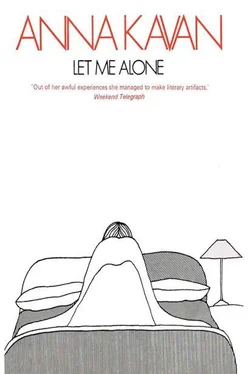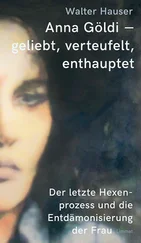Mrs. Kavan dropped the brass shovel with a clatter into the grate, and stood up.
‘I’ll leave you alone then,’ she said, darting her inquisitive looks.
‘But surely it’s nothing that can’t be said in front of mother,’ protested Matthew. ‘We have no secrets from her.’
‘Very well,’ said Anna, thoroughly disdainful.
She turned her back on Mrs. Kavan. Then she stood in front of Matthew.
‘Is it true that you married me because I had money of my own?’ she asked him.
Matthew rose, dropped his newspaper on the floor, and stared at her. The foolish, bullying look came on his face.
‘What? What nonsense!’ he blustered, looking foolish.
The corner of Anna’s mouth went down disdainfully.
‘I’ll put the question another way then. Is it true that if I had not had the three hundred a year you would not have married me?’
‘How can you say such things!’ He was deeply affronted.
Mrs. Kavan stood as if transfixed, staring from one to the other.
‘Is it true?’ Anna persisted, sarcastic and cold.
He gasped at her, speechless, and turned to his mother.
‘You’d better go, mother,’ he said, attempting dignity. ‘There’s no need for you to listen to this painful rubbish.’
The old lady hesitated uncertainly, opened the door, and went. She wanted to plunge into the fray, but Anna’s coldness restrained her.
‘Now, what do you mean by speaking to me in this way?’ Matthew could hardly contain his anger as he turned back to Anna.
She watched him steadily, cold in distant contempt. She seemed to hold herself far away from him.
‘You don’t deny that you wanted more money in the family?’
‘No. Why should I deny it?’ he said, quivering with anger.
‘Then you would not have married me if I had been penniless?’
He watched her stupidly. His face was dark with anger. He was a bit bewildered too, not quite sure of his ground.
‘I was glad that you had the money,’ he said, the angry, blank look, so foolish, on his face.
She looked at him with eyes that were hurt and accusing and infinitely contemptuous. She felt herself miles away from him. But still she looked at his hot, opaque blue eyes, and his meaningless head. She even saw the fists hanging clenched, strange leathery fruits dangling at the ends of his long arms. She looked: but not as one looks at a man. She felt no connection. She held herself quite aloof from him. Then she went out, up to her bedroom, leaving him alone.
She walked off, right away from him, thinking to herself:
‘He didn’t even want me, particularly. It was the money as much as anything. I’ve let myself be made a fool of — by that queer fish!’
It was a horrid blow to her pride to feel that she had been taken in. In spite of her much-prized intelligence, Matthew had got the better of her, had cheated her with his low cunning. He who was not even quite a man. And yet she did not mind very much. She was not terribly insulted; perhaps just because he had never seemed real to her.
But she wanted to escape. She had a strong craving, suddenly, to get right away from the Kavan atmosphere. Outside it was grey and sunless; but was at least there freedom in the cold air. She felt that she had been imprisoned for a long time in River House. The place smelt like a prison in her nostrils. She put on her things and went out.
The roads were grey and muddy. The mist condensed slowly in a cold drizzle, blotting everything out. With a face like a mask, she walked on, feeling nothing, thinking nothing. The houses were clouded spectres, half curtained by the mist. She did not see them. She seemed strangely to have taken leave of her own body. There was no thought, no sensation. A blankness was upon her. It cost her an effort to find out where she was. Then she noticed the station.
She went in, and bought a ticket to London. There was plenty of money in her bag. The train came and went, and she sat in it, looking out of the window with a bright, composed expression, seeing nothing at all. At South Kensington she got out. There was some idea of going to the museum at the back of her mind. Queer how at any mental crisis she tended to seek a scholastic atmosphere, as though she found support in a hint of the cloister and of monasticism. But the wet, grim buildings looked forbidding. She wandered instead along the Brompton Road.
In sight of the gay shops, a sudden resolve came to her. She bought a small travelling case and things for the night, took a taxi, and drove to a quiet hotel where once, for some reason, she had stayed with Rachel Fielding. She engaged one of their best rooms, one with a private bath. She did not think at all, but at the very bottom of her mind, like a stone, lay the knowledge that she could never go back to River House. She did not examine it, or notice it particularly: but all the time, as she busied herself with the hot water and with her hair and clothes and complexion, this certainty lay like a small weight, stony, sunk to the bottom of her consciousness.
Having had no tea, she was hungry, and went early to dinner. The bright table, the good food, the efficient service of this meal, in the preparation of which she had taken no part, all gave her pleasure. She ate slowly, with deliberate enjoyment, appreciating each detail.
Once the thought of the evening meal at River House came to her. She remembered the tough Welsh-rarebit, or the watery macaroni, or the poached eggs, or the scraps left over from mid-day, which usually composed it. Then the whole thing passed from her mind. She would not think of it again.
After dinner she debated whether to go out. But it was wet and cheerless. So she sat in an armchair in the lounge, near the big fire, looking at illustrated papers. She felt strangely peaceful and content. When anyone spoke to her, the waiter or the maid, she answered pleasantly, with a mildly smiling face, quiet but almost gay. At ten o’clock she went to bed.
In her bath she began to think of Sidney, who had left Haddenham and was now living with a woman friend who owned a kennel of spaniels, somewhere in the Salisbury Plain region. Sidney wanted to start dog-breeding on her own account. Some letters, short and unsatisfactory, had come from her since Anna’s marriage. Their relationship seemed to have come to an end; though no decisive deathblow had been struck. Now Anna had an impulse towards her again. She must see her, talk to her. The remembrance of Sidney’s affection came back to warm her. Together with the unreasoning faith she had put in the other girl. Once more she felt that Sidney could be her salvation — if she chose.
As she got into bed she continued to think warmly of Sidney. She would go to her the very next day.
Anna slept soundly and well. In the morning, she woke up warm and comfortable and happy. What happiness to be quite alone in a room which no one had the right to enter uninvited! What happiness simply to be free! Everything pleased and delighted her. She took a simple, childlike pleasure in the soft carpet, the clean roughness of the towel on her body, the wintry sunshine outside the windows. Her face seemed to grow softer, and rounder, as she dressed, more innocent. Her mouth took on a gentle, bland curve, half smiling to itself. And she was going to Sidney.
She would not think of Matthew or of River House. All the time, on the floor of her consciousness, lay the small stony weight that stood for these unpleasant things. But she did not attend to it. Her thoughts would not turn that way. Like a string of ants circumventing an obstacle, her thoughts circled round that stone, calmly ignoring it. She did not think of the future, or of anything at all far away. It seemed that her mind would only consent to occupy itself with immediate things; her breakfast, her appearance, the coming journey to Sidney.
Читать дальше












